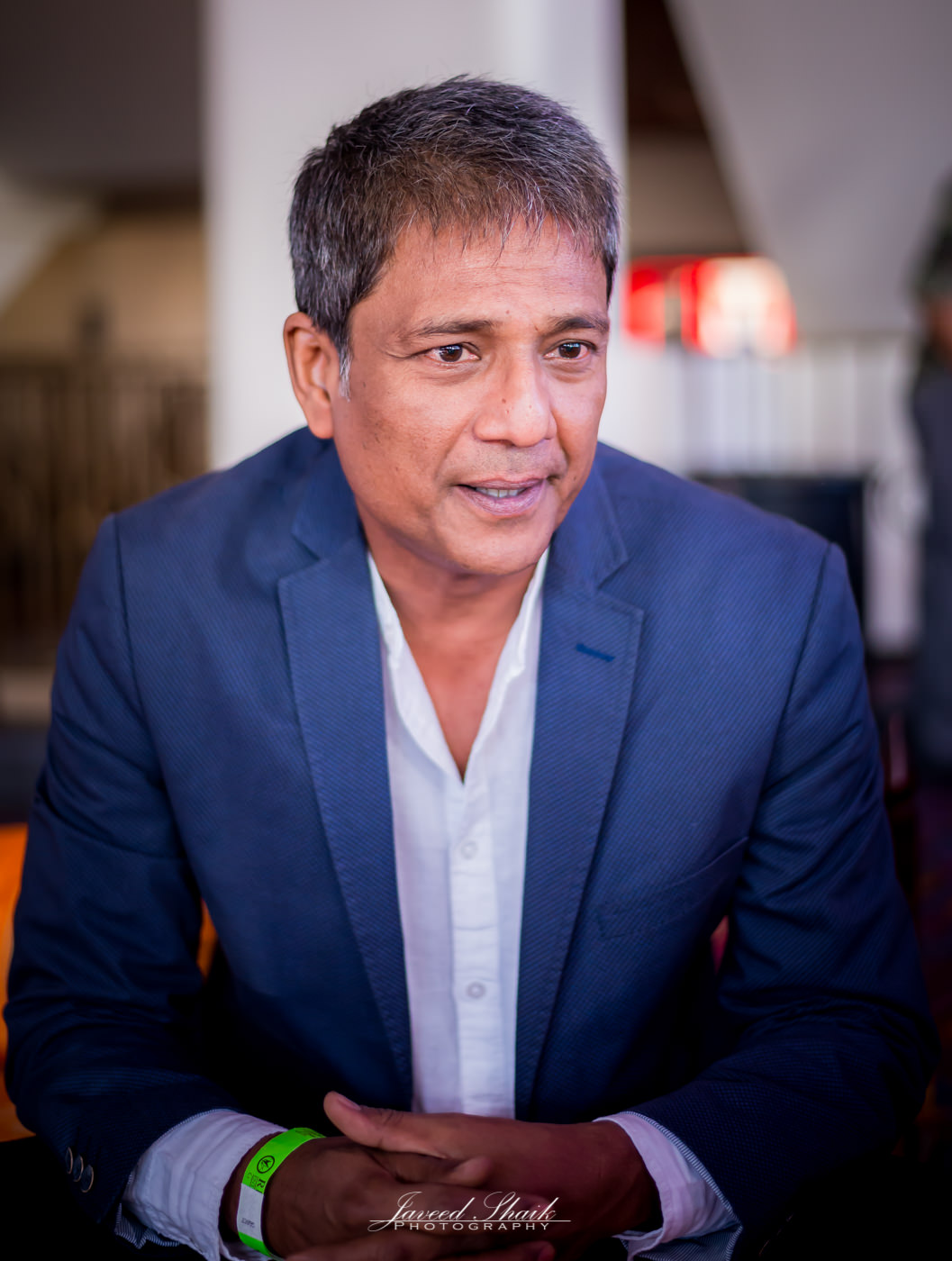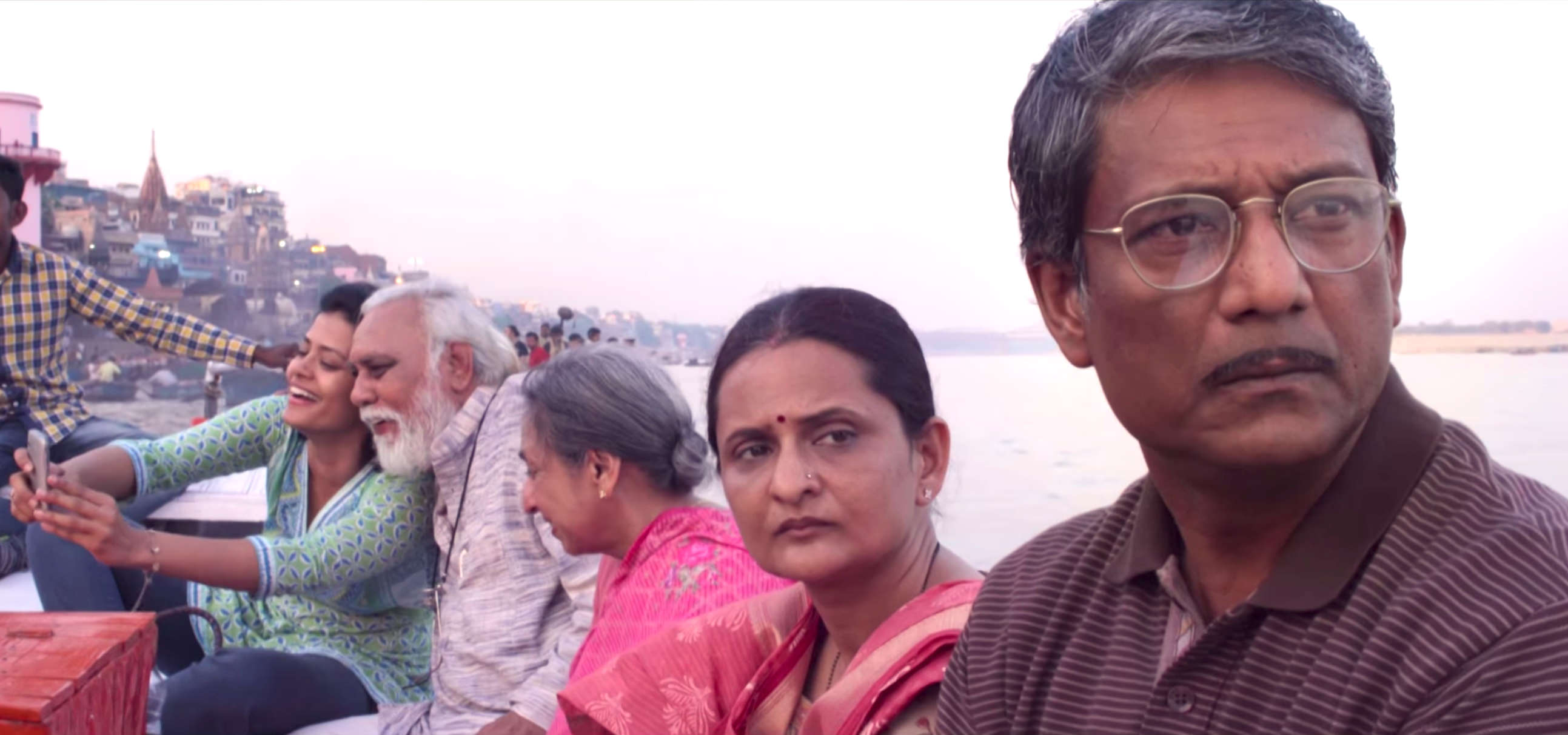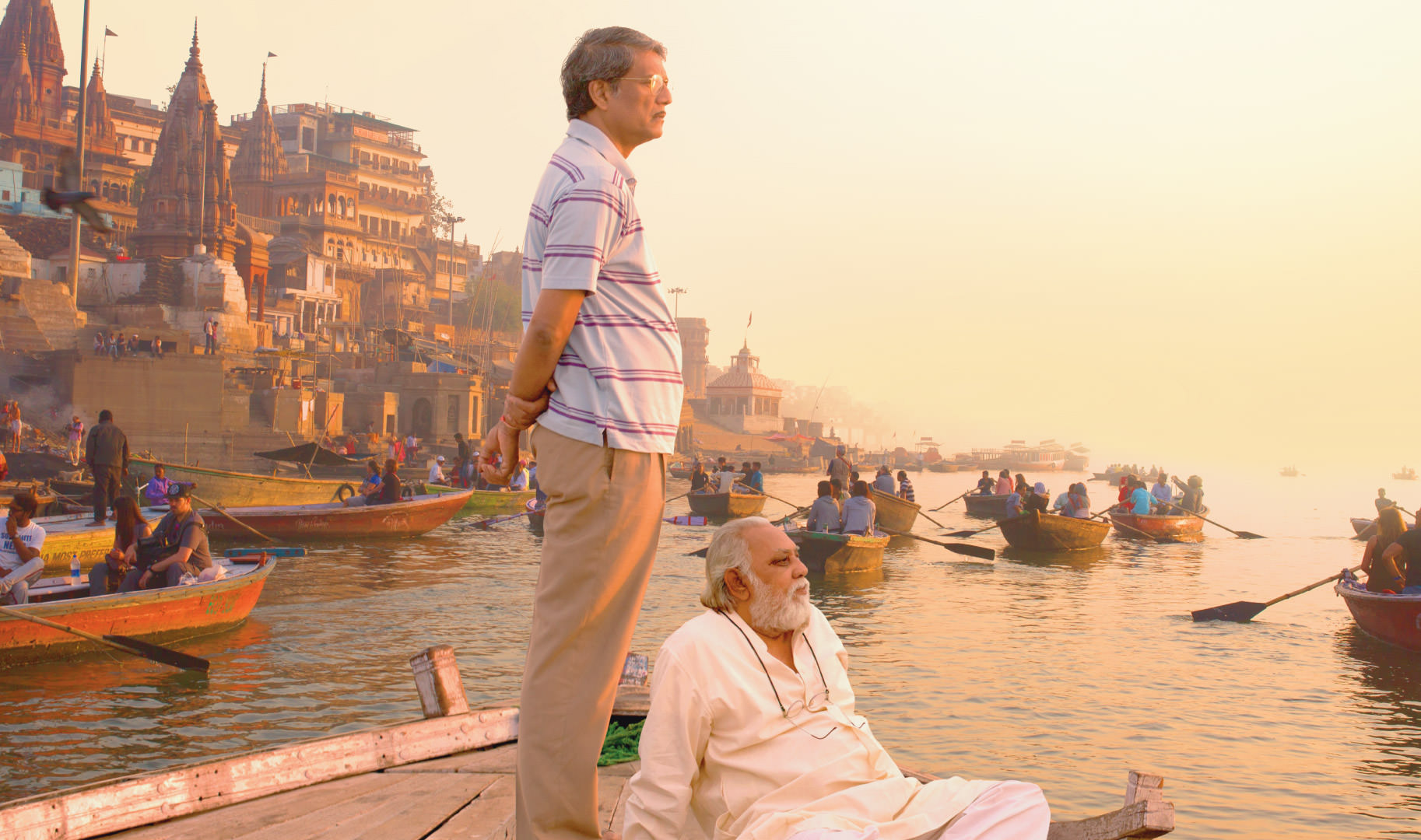
Be it the pragmatic zookeeper in ‘Life of Pi’, the scornful husband in ‘English Vinglish’ or a mystic lover in ‘Parched’, Adil Hussain can morph convincingly into any character and breathe life into it. His prolific work spans 50 films in the last 15 years, 4 of which played at the Indian Film Festival of Los Angeles (IFFLA) in 2016 alone. This year, we saw him in the deeply evocative closing night film ‘Mukti Bhawan’ (Hotel Salvation), directed by Shubhashish Bhutiani, where he plays a middle-aged son who has to accompany his aging father to Benares, because he insists that his death is imminent. We caught up with Adil at IFFLA, the day after he was honored at the National Awards for his sublime performance in the film.
Congratulations on receiving the special mention at the National Awards. How does that feel?
I feel officially good. I’ve been feeling good about this movie and I felt good after I watched it for the first time in Venice. You know, in your 53rd year, after doing 50 movies, when you see yourself onscreen, you think “Hmm…I could’ve been more relaxed in that scene”, but it’s ok. When you watch a film for the first time, unfortunately the narcissist in you watches yourself. Then after you watch it for the 10th-11th time, you start watching the movie and you don’t take yourself so seriously. So I feel very good and I’m very happy that the national film body of India has recognized this film and my performance.
We think the recognition could’ve come a lot sooner…
You know, I believe you always get what you deserve – including the pains and the pleasure.
‘Mukti Bhawan’ deals with the inevitability of death. What attracted you to the script?
Death, indeed. I had been very intrigued by the questions posed by Stanislavsky, who is the father of modern acting. He was a Russian methodologist of acting. He insisted that we must know the answers to the five W’s – “Why, Where, When, Who, What”. Who are you? What are you doing here? When are you? Where are you? And Why are you? So I ask these questions about life. You are here right now because you wanted to talk to me. But why are you really here – because of the festival. But why are you here in LA – and so on. I extended it more – why am I here on planet earth? And where did I come from? Where am I going after I die? That led me to read books in which I might find answers. It took me on an amazing quest of Indian mystic understanding, the Buddhist understanding and even the South American shamanistic philosophy of life and death.
Stanislavsky insisted that we must know the answers to the five W’s – “Why, Where, When, Who, What”. Who are you? What are you doing here? When are you? Where are you? And Why are you? So I ask these questions about life.
When I received this message from one of our common friends and the producer of the film, that a 24-year-old guy wrote this film about a man who is taking his father to die in Benares (and Benares is a place very close to my heart) and his first film won the Best short film in the Venice film festival in 2013, when he was only 21, I realized that he knows how to make a film and he’s dealing with one of my most favorite subjects. So without reading the script, I said yes. And when I read it, I was very happy that I made the right choice. While shooting the film, I realized that this 24-year-old is humble, wise, talented and knows how to tell a story – it’s a fatal combination of a very very gifted filmmaker.

You have worked with so many different kinds of filmmakers – both established and upcoming. With other young directors like Shubhashish, how do you take that leap of faith?
I behave like a woman. You know how? I had a friend who taught me how to read books – not like I did – from the preface, then introduction, then chapters. She criticized me and said “you’re such a male!”. I didn’t understand and I said “what do you mean?” She said “You open the book and whatever page you land on, that’s what you’re supposed to read.” And I said “What are you talking about? You read a book from the beginning!” She said “Yes, fiction I understand, but not when you’re reading non-fiction.” Most of the books that I read, fortunately or unfortunately were not literature but in my opinion, they’re richer than literature.
“Women stood in front of a field or a jungle and one of them would say “that way” and nobody questioned it. But if one man says “that way”, all the other men will go “why, blah blah blah” with all their strategies and scheming. Women just believed in intuition.”
Anthropologically if you look at the history of men and women, women were the gatherers and men were the hunters. So women stood in front of a field or a jungle and one of them would say “that way” and nobody questioned it. But if one man says “that way”, all the other men will go “whhhhyyy blah blah blah” with all their strategies and scheming. Women just believed in intuition – idhar hi jaana hai (this is the way to go). So I tried to develop that faculty of intuition within myself- “I feel good about this film”. Some of them are strategic choices of course – I won’t name them – but some films I do for my bills and some for my dil (heart). I can’t do Mukti Bhawan unless I do those films. They give me the economical independence to subsidize my involvement in artistic projects.

“Some films I do for my bills and some for my dil (heart). I can’t do Mukti Bhawan unless I do those films. They give me the economical independence to subsidize my involvement in artistic projects.”
Talking about being intuitive, would you then say that you’re not a method actor?
I used to be a method actor until 2011. I don’t want to bad mouth method acting, but it turned out to be a sort of a burden on my shoulders. It’s difficult to articulate. When I was 28 or 30 years old, I was in drama school and I read a lot of autobiographies about method actors and their everyday lives were messed up. That got me very very worried, to the point of being anxious and apprehensive and I did not want to end up a messed up person by the time I was 50 years old. The stories were so horrifying, including that of an actor called Marcel Marceau. He was not a method actor but he is considered the father of mime acting. His personal life was a mess. I met his grandson in France and he told me his stories. So I tried to find a way out. It’s a long story…I could write a book about it (…if I wasn’t so lazy. I need a shadow writer!). And something really magical happened in 2012. That day – it’s weird – I was ready to take the leap and I sort of jumped off the cliff and I flew without the rope. I gave up on method acting. I followed the Indian process which I call ‘surrendering to the Goddess of creativity’. I read the script as many times as I can and I don’t entertain the brilliant ideas which come to my mind. I shove them into the toilet and flush them. And I go on set as a white canvas, so that I can be painted on. Just clean. I give in to the moment. And things happen – more organically.
“I go on set as a white canvas, so that I can be painted on. Just clean. I give in to the moment. And things happen – more organically.”
Is there any one director who you would really like to work with?
Not one. A few. I’d like to work with Partho Sen Gupta. There’s a film that I did with him called Sunrise and I think it’s one my best performances. Of course, I’d work with Shubhashish Bhutiani again any day. I’d love to work with Ang Lee again. I’m very happy that his wife is coming to watch the movie in New York. I would like to work with Gauri Shinde again. She is so fantastic.
You were amazing in ‘English Vinglish’. Your character made me very angry.
I know! I hated myself too! I grew up with those males who treat women like second class citizens. I know men in my family and my friends who are like that. What a terrible character – my wife was born to make laddoos? What are you talking about?? Terrible! Atrocious! (laughs)















